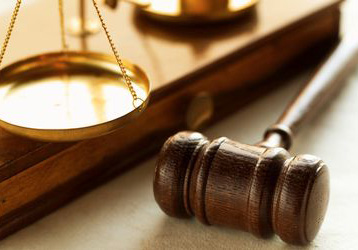In a report published today, the ICJ calls for comprehensive reforms of the disciplinary system for judges in Russia as a means to ensure an independent judiciary that is an effective guardian of the rule of law.
The ICJ report Securing Justice: the Disciplinary System for Judges in the Russian Federation focuses on disciplinary action against judges, in particular on dismissals.
It considers how dismissals and the disciplinary system affect the independence of judges, which is essential to the Rule of Law and the right to a fair trial.
An unusually high number of judges are dismissed each year in the Russian Federation, the report says.
“The threat of dismissal, and the uncertainty of the grounds on which a judge can be dismissed, affects the capacity of all judges to act independently,” said Róisín Pillay, Director of the ICJ Europe Programme. “The threat of disciplinary action may hang over a judge for many years, since there is no limitation period for such action. This makes the judge susceptible to pressure from within the judicial hierarchy or from the executive.”
When disciplinary action is taken, there is a lack of guarantees to ensure fair procedures for the judges concerned, the report further notes.
The report makes recommendations for the reform of laws and procedures on judicial discipline in the Russian Federation to strengthen the safeguards for judges against abuse.
It also stresses that a deeper and more universal culture of respect for the judiciary and its independence, as well as a sense of autonomy and empowerment within the judiciary itself, are necessary to prevent abuses of the judicial disciplinary process.
“Such reform should be conducted through consultation with civil society, academic and legal experts, as well as with the judiciary,” Róisín Pillay added.
The Report follows an ICJ mission to the Russian Federation in April 2012, to assess the guarantees in regard to disciplinary procedure, grounds for disciplining and dismissals of judges and their potential effect on the security of tenure and the independence of the judiciary.
The mission included Azhar Cachalia, Judge of the Supreme Court of Appeals of South Africa and Commissioner of the ICJ; Alejandro Salinas, lawyer from Chile and a member of the CIJL Advisory Committee; Róisín Pillay, Director of the ICJ Europe Programme, and Temur Shakirov, Legal Adviser at the ICJ Europe Programme.
The mission held meetings with the President of the Supreme Court; with judges of the High Arbitration Court, including members of the Disciplinary Judicial Presence and the Judicial Commission on Ethics of the Judicial Council; with the Judicial Department under the Supreme Court; with members of the Human Rights Council under the President of the Russian Federation and its Head, the Human Rights Adviser to the Russian Federation President; with a number of former judges who had been dismissed or resigned; with academic experts on matters of judicial discipline and the judicial system; and with lawyers and human rights NGOs.
Contact:
Róisín Pillay, Director, ICJ Europe Programme, roisin.pillay(at)icj.org
Temur Shakirov, Legal Adviser, ICJ Europe Programme, temur.shakirov(at)icj.org
Russia-ICJ Mission-Press release-2012-rus (full text in pdf)
Russia-ICJ Mission Report-Publications-2012 (full text in pdf)
Russia-ICJ Mission Reprot-Publications-2012-rus (full text in pdf)

